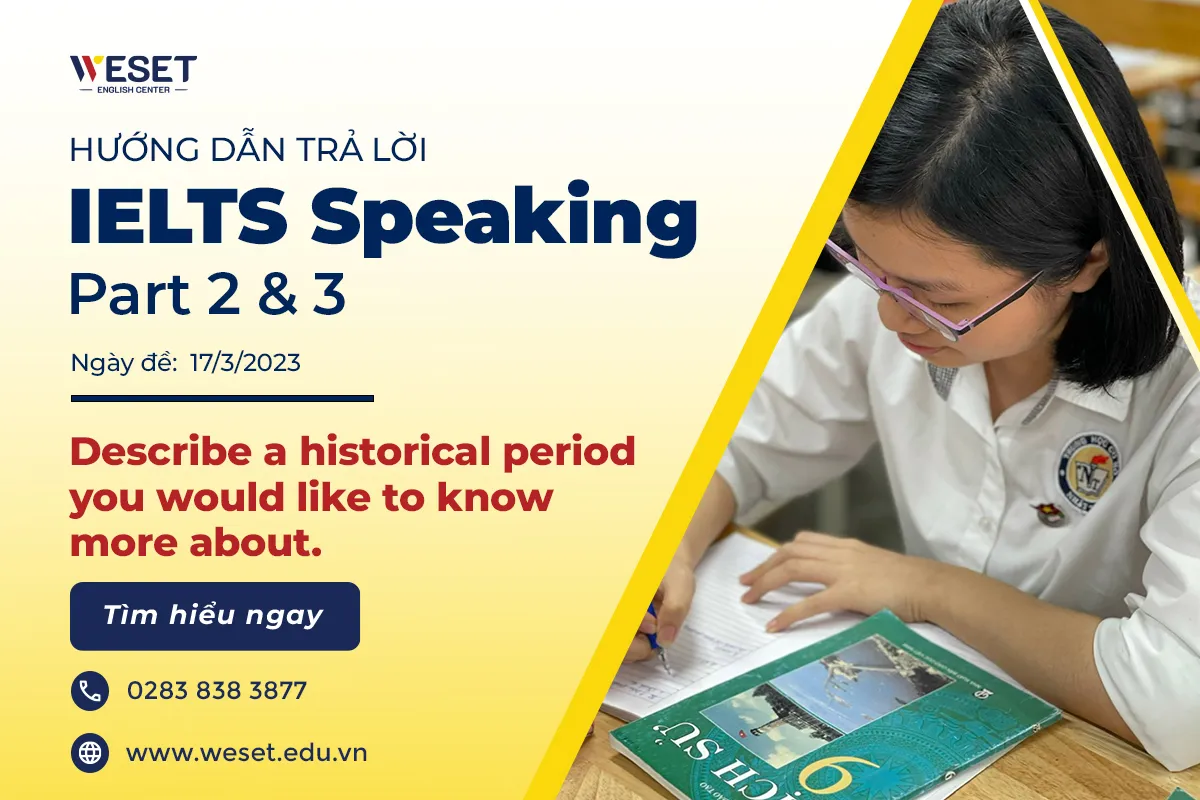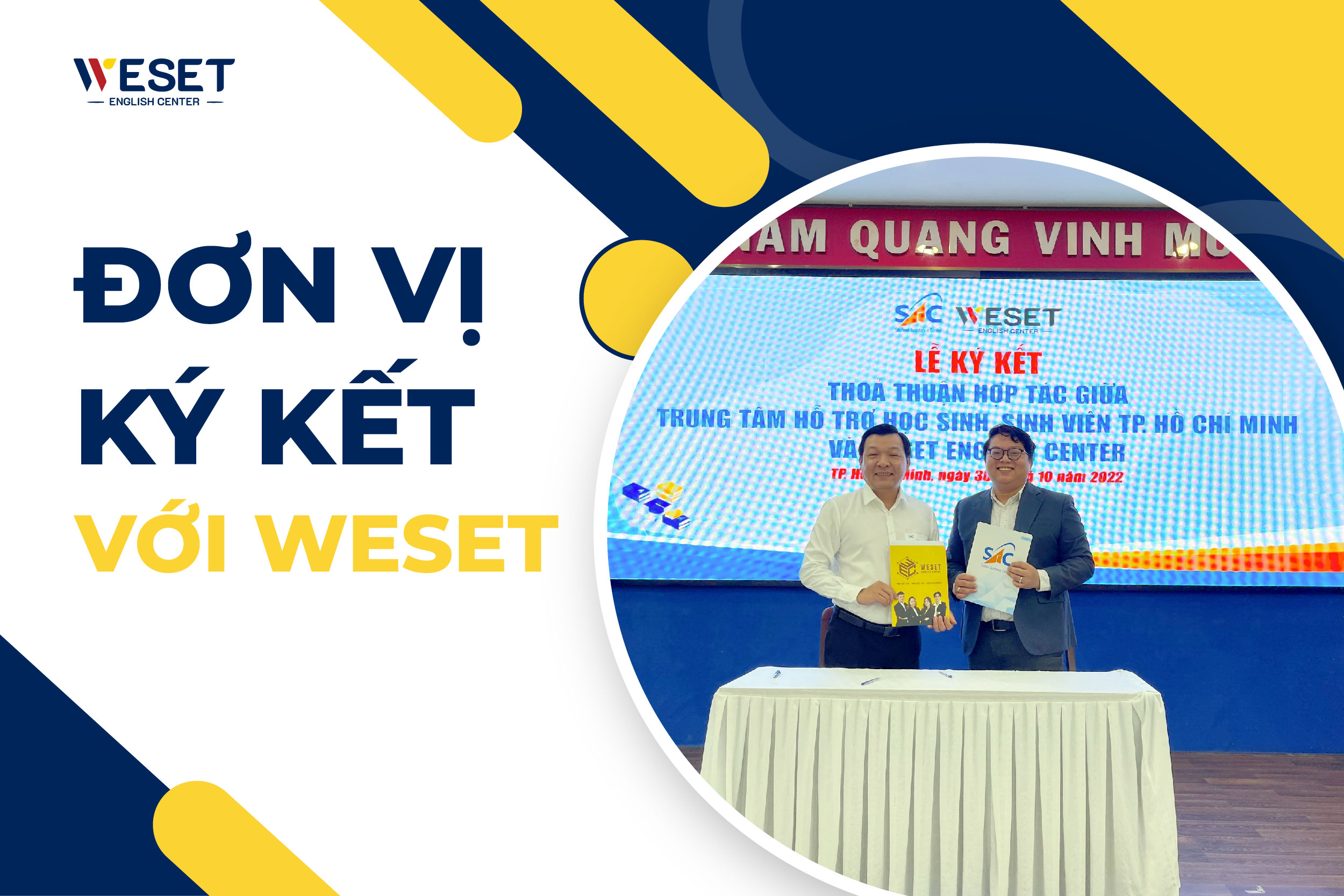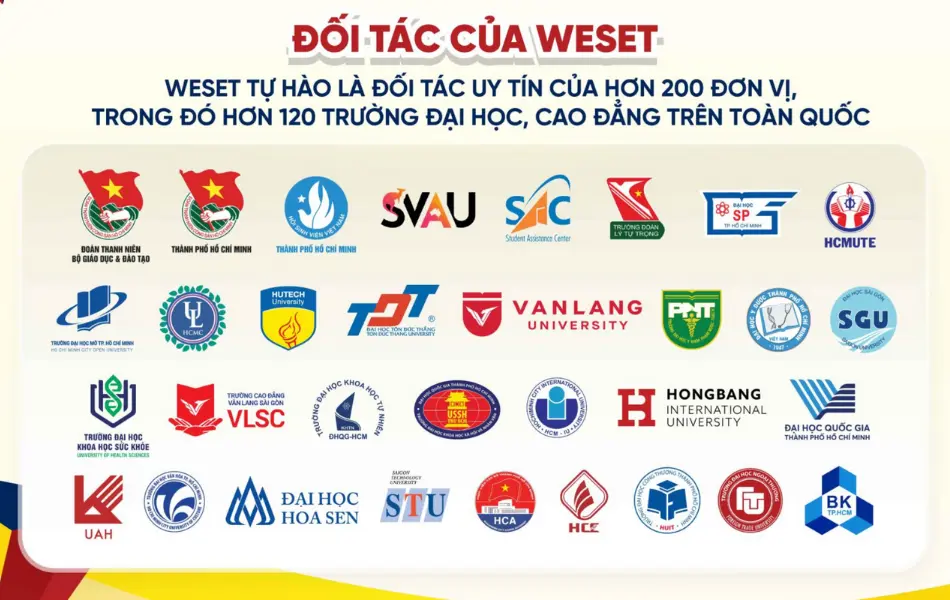IELTS Speaking: Describe a historical period you would like to know more about
- WESET
- Bài mẫu IELTS Sample Speaking, Bài thi IELTS mẫu, Blog, Blog IELTS
MỤC LỤC
Trong IELTS Speaking, lịch sử luôn là chủ đề đòi hỏi sự chuẩn bị từ vựng kỹ lưỡng và ghi nhớ các sự kiện chính xác. Hôm nay hãy cùng WESET xem cách hướng dẫn “xử gọn” đề bài khó khằng này nha.

Đề thi IELTS Speaking mô tả về một giai đoạn lịch sử mà bạn muốn tìm hiểu
IELTS Speaking part 2 – Describe a historical period you would like to know more about
You should say
- When it was
- What you are interested in
- What you have learnt already
- And explain why you would like to know more
Sample
| When it was | When it comes to history, I am always excited to learn and talk about Viet Nam’s Resistance War against America, a magnanimous period of our country, which took time from 1954 to 1975.This is one of the times that Viet Nam suffered colonization from powerful country at that time for hundreds of years and this war is also the last war, a milestone for our country’s new era of peace and independence. |
| What you are interested in | Since it is a war period, people’s lifestyle back then was very different from ours nowadays, which I have great interest in. In addition, I am also eager to have a deeper look of how our ancestors won the war despite the difficult living conditions and obstacles. |
| What you have learnt already | After the year of 1954, our country was divided into two parts, Northern and Southern. While the North was continuously attacked by US soldiers’ bombs and guns, the land in the south was invested by the US government and individuals in here lived a little bit easier. But one common difficulty for both areas was that communication was almost impossible between two sides. By overcoming the obstacles and destitute conditions, our ancestors still fought bravely and with the support from ordinary people and allies, we won multiple battles although we were rated weaker compared to such a well-armed country like the US. |
| Explain why you would like to know more | Vietnam’s Resistance War against America is an unforgettable period of history for our people in Viet Nam to learn and to discuss about this is a way for us to admire and feel thankful to the former generation because thanks to them, we can have a better life with peace and independence. |
IELTS Speaking part 3
1. Should everyone know about history?
From my point of view, every individual should learn history, but just basic knowledge. Firstly, because history is an important part of life, understanding it can help us make informed decisions in the present and future. Additionally, history’s knowledge can also enable us to develop empathy and compassion for others, as well as a better appreciation for our own culture, since history reflects the patterns and trends in our society. On the other hand, studying too much about history can make us rest on one’s laurels. Although being proud of our past is good, being subjective and underestimating the situation might make you become arrogant.
2. In what ways can children learn about history?
Well obviously children can easily be taught about history at school. But for me, the most practical way to understand and remember new fields is to have real experience. Children can experientially learn about history through field trips to museums or events that are related to traditional activities. Additionally, children can learn history by the use of primary sources, such as documents, photographs, artifacts, especially the internet.
3. Is it hard to protect historical buildings?
It is indeed quite hard to preserve historical buildings. This is because the protection of these structures requires a great deal of effort and resources. For example, it’s necessary to maintain the structural integrity of the building, which can be a challenge due to the age of the building and the materials used in its construction. Secondly, the most vital and effective way to project these features is to educate and change people’s attitude about historical buildings. This can be very difficult to achieve since every person’s perspective is different from each other. Some people think historical artifacts are important and valuable, but some see them as just some old items.
New vocabulary
- When it comes to: Khi nói về chủ đề
- Magnanimous period: Giai đoạn hào hùng
- Colonization: Sự thuộc địa hoá
- Destitute: Khó khăn, nghiệt ngã
- Former generation: Thế hệ đi trước
- Empathy: Sự thấu cảm
- Compassion: Lòng trắc ẩn
- Appreciation: Sự trân trọng, quý mến
- Reflect: Phản ánh, phản chiếu
- Rest on one’s laurels: Ngủ quên trên chiến thắng
- Subjective: Chủ quan
- Underestimate: Đánh giá thấp, coi thường
- Arrogant: Kiêu ngạo
- Field trip: Chuyến đi thực tế
- Artifacts: Cổ vật
- Structural integrity: Cấu trúc toàn vẹn
Có thể bạn quan tâm
Giving Opinion – Sample IELTS Speaking Part 2 & 3






